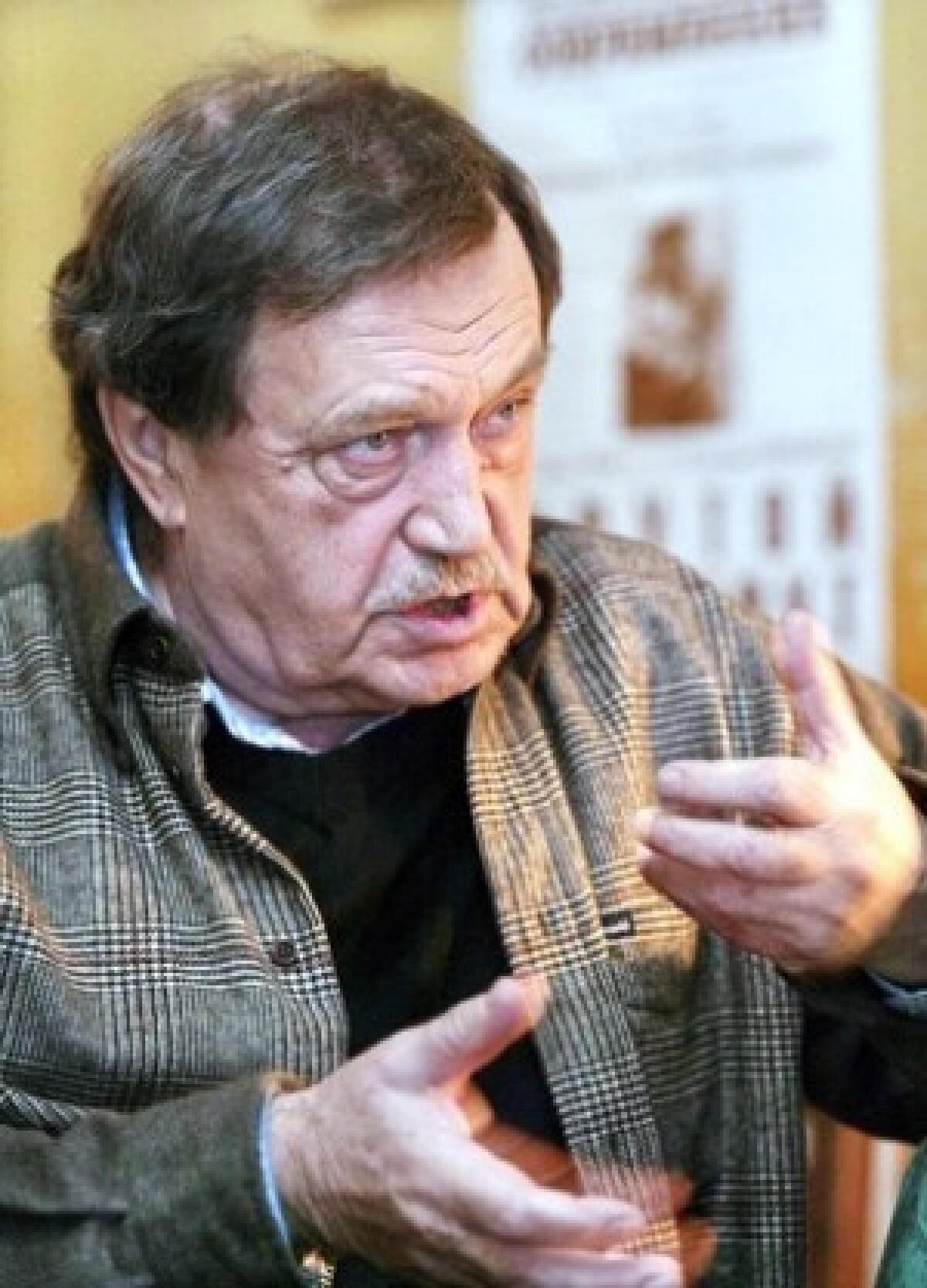Vasily Aksyonov dies at 76; dissident writer expelled from the Soviet Union

- Share via
Vasily Aksyonov, a prolific Russian writer who was among the last wave of dissidents to be expelled from the Soviet Union, died Monday. He was 76.
Aksyonov died at a Moscow hospital where he was being treated after suffering a stroke last year, his widow, Maya, told Ekho Moskvy radio.
The author of more than 20 novels, Aksyonov was exiled in 1980 after he was branded “anti-Soviet.” His most famous prose works -- including “The Burn,” “The Island of Crimea” and “The Moscow Saga,” known in the U.S. as “Generations of Winter” -- often incorporated his experiences in Russia and the United States, where he lived for more than two decades.
He taught literature at a number of American universities, including USC, George Mason University in Virginia and Goucher College in Maryland. He also worked as a journalist for Radio Liberty.
Born Aug. 20, 1932, in the city of Kazan in central Russia, Aksyonov was the son of Yevgenia Ginzburg, a prominent journalist. She and Aksyonov’s father, a local Communist official, were sent to labor camps in the late 1930s at the height of Josef Stalin’s political purges, and their son was placed in an orphanage.
At 16, Aksyonov joined his mother in exile in the remote and frigid Magadan region, home to some of the harshest gulag prison camps, where his views were shaped in an atmosphere of free discussion among the repressed intelligentsia. His mother became known internationally after the publication of her memoir, “Journey into the Whirlwind.”
Aksyonov graduated from the Leningrad Medical University in 1956 and worked as a doctor until switching to writing full time in 1960.
His first novel, “The Colleagues,” was published in 1959 in a popular youth magazine, bringing him instant recognition. He soon became one of the informal leaders of the Shestidesyatniki -- which translates roughly as “the ‘60s generation” -- a group of young Soviets who resisted the Communist Party’s cultural and ideological restrictions.
“It was amazing: We were being brought up robots, but we began to listen to jazz,” Aksyonov said in a 2007 documentary about him.
“Aksyonov’s death is the death of an entire era,” writer Viktor Yerofeyev told the ITAR-Tass news agency. “And those are not just words -- Aksyonov created the literary language of the Shestidesyatniki. . . . In the ‘60s, he was an idol for the whole country.”
About 5 million copies of his books were published in the Soviet Union until he fell out of official favor in the mid-1970s. In 1979, Aksyonov and several other young writers set up a journal called Metropol, but it was blocked from publishing and Aksyonov was expelled from the Union of Soviet Writers.
“The Moscow apparatchiks claim that by sending writers into exile they are purifying the air of our country,” Aksyonov told the New York Times after being forced out of the Soviet Union. “This, of course, is not true. They are not purifying the air but replacing it. I would say they are creating a new, oxygenless civilization.”
In 1990, amid openness and criticism of the repressive past during the glasnost era and a year before the Soviet Union’s breakup, Aksyonov was reinstated as a Soviet citizen. He began to visit frequently and his books were widely published in Russia.
In 1994, he published “The Moscow Saga,” an epic trilogy that described the lives of three generations of a Soviet family between the 1917 Bolshevik Revolution and Stalin’s death in 1953. The book was made into a popular, 24-part series for Russian television in 2004. That year he also won the Russian Booker Prize, Russia’s top literary award, for his historical novel “Voltairian Men and Women,” about a meeting between the famous philosopher Voltaire and Empress Catherine II.
Aksyonov is survived by his wife and a son.
More to Read
Start your day right
Sign up for Essential California for the L.A. Times biggest news, features and recommendations in your inbox six days a week.
You may occasionally receive promotional content from the Los Angeles Times.




